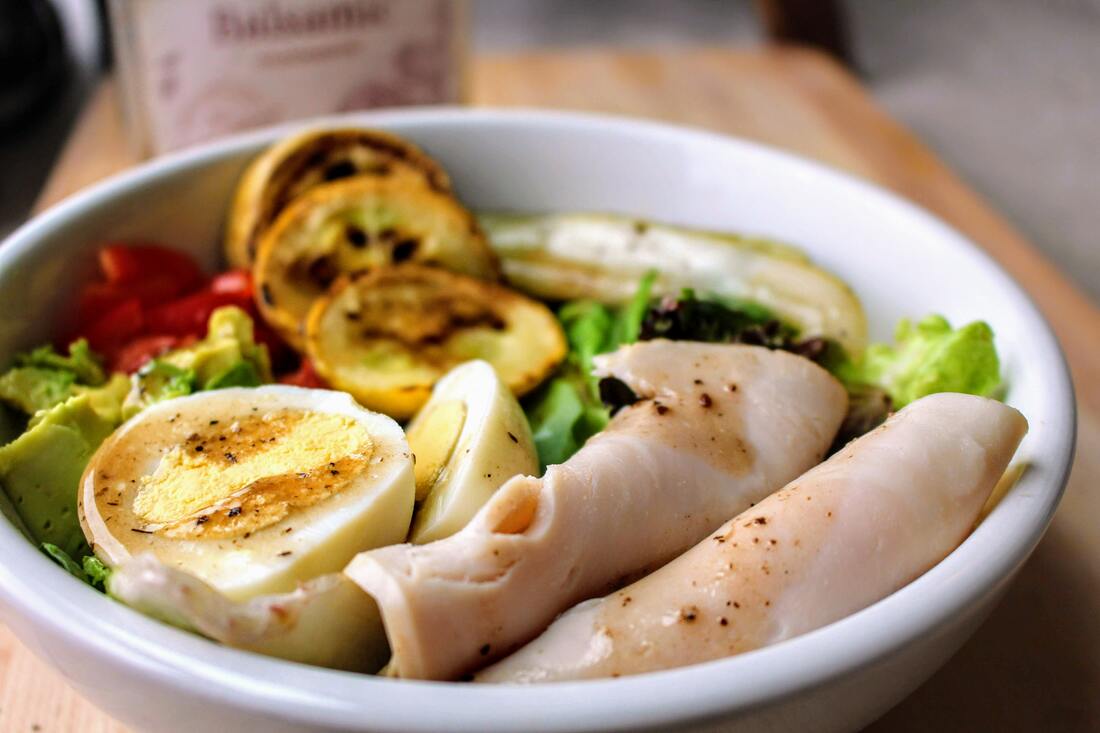You’ve got to see what you put into your body, not just care about the outside of your body. What is Protein? Along with carbohydrates and fat, protein is one of the three macronutrients we need to obtain from our diet. “Macro” means big, indicating that protein, carbs, and fat are present in the food we consume in higher quantities than micronutrients like vitamins and minerals. We also need higher amounts of macro- than micronutrients for optimal health. Protein takes up different forms inside our body and performs a variety of functions, which can be divided in two main categories: structural roles and metabolic roles. Proteins with structural functions form connective tissue, tendons, and muscle fibres. Proteins with metabolic functions are involved in different stages of various chemical processes that maintain our body alive and well: for instance, insulin regulates blood sugar levels.
How Much Should We Eat? According to the current government guidelines in the UK, the average healthy individual is recommended to eat 10-15% of their calories from protein, which works out at about 1 gram of protein per kilogram of bodyweight. A good starting point to regulate protein intake without tracking is to have one serving of protein with every meal and snack: for example, a high-protein yogurt for breakfast, chicken breast for lunch, a protein bar or shake in the afternoon, and tofu for dinner. For athletes, the recommendation is dependent upon the sport performed and can be as high as 2 gr per kg (1 gr per lbs). If you’re a professional or recreational lifter looking to enhance muscle size and strength, a recent meta-analysis on the effects of a high protein intake on healthy individuals performing resistance training has shown an increase in muscle mass and strength when consuming at least 1.6 gr of protein per kg (0.8 gr per lbs). The current research has yet to set an upper limit above which protein intake can be harmful. As far as we know at the moment, shooting above 1.6 gr per kg isn’t harmful for average healthy adults (click). For professional bodybuilders aiming to lose 0.5-1% of their bodyweight per week in preparation for a competition – a process called contest prep – it has been recommended to consume up to 3.1 gr of protein per kg per day, depending on the individual, to improve satiety and prevent losses in lean mass (click). However, contest prep lasts for a limited period of time, during which the goal is to reach a condition of extreme leanness that is unsustainable in the long term. Moreover, the abovementioned meta-analysis shows no further improvements in lean mass when protein consumption increases past 0.8 gr per kg per day. If you want to maximise your gains or eat a healthy, balanced diet – or both – it’s unlikely you’ll need to go any higher. What Kind of Protein Should We Eat? Protein is made up of amino acids. You can think of them as LEGO bricks, fitting together into hundreds of combinations, each corresponding to a different protein with a different role in our body. Of the 20 existing amino acids, nine are considered essential because the body can’t manufacture them, so we can only obtain them from food. Animal protein, such as meat, fish, eggs, and dairy, is called complete protein because it provides all of the essential amino acids. Plant protein, like beans and wholegrains, is incomplete, because each source only has some of the essential amino acids, but lacks others. Although it may seem logical to get most or all of our protein from complete sources, you should take into account the higher fat content, especially saturated fat, of animal protein compared to vegetable protein. Moreover, combining different sources of plant protein will allow for the absorption of all essential amino acids. For example, a 2017 study showed that eating 70% or more of your protein intake in the form of plant protein resulted in an inadequate consumption of lysine (one of the essential amino acids). However, adjusting your diet to incorporate more lysine-containing plant foods may correct that issue. On the other hand, eating enough protein on a plant-based diet may prove challenging due to the higher volume of food that might be needed. The most healthful choice appears to be somewhere in the middle: a combination of plant protein and animal protein sources that provides the body with all of the essential amino acids (click). This balance guarantees a sufficient protein intake and lowers the risk of cardiovascular disease, associated with an excessive fat intake. In Future Episodes: Out next week, Part 2 will cover the basics about carbohydrate and fat! Your Turn: How much protein do you eat every day? This article was also published on The Galleon News.
7 Comments
1/16/2022 06:57:22 pm
What an exquisite article! Your post is very helpful right now. Thank you for sharing this informative one.
Reply
3/3/2022 12:42:08 pm
Thank you for sharing informative content. It means a lot to me hope you do more articles to post.
Reply
10/18/2022 11:07:09 am
Reply
Your comment will be posted after it is approved.
Leave a Reply. |
Nikias TomasielloWelcome to my blog. I’m an online fitness coach with a passion for bodybuilding, fantasy, and bread. Want to work with me? Check out my services!Archives
May 2024
Tags
All
|
Follow me on social media |
Get in touch |
© 2018-2023 Veronica Tomasiello, known as Nikias Tomasiello – All rights reserved


 RSS Feed
RSS Feed